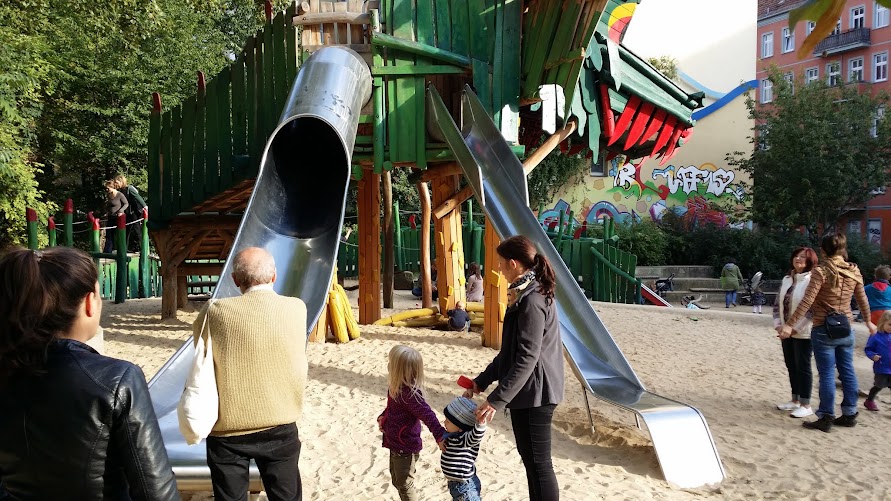Recovery
It's seventy years on and Berlin has survived all these disasters to emerge from its chrysalis, shedding its tattered shell if still a little ragged around the edges, to take its place as one of the World's great cities and certainly one of the nicest to live in, blending the caring-sharing East with the striving-individualistic West. Young families abound as do playgrounds that are a lot more adventurous and risky and demanding of self reliance than those in litigious Australia.

Dragon Park - One of many playgrounds in Berlin - there's a pirate ship too
The small child crouching underneath is my grandchild - playing with bucket and spade
There is an energy to Berlin that is palpable.
This article was written in 2015. You can read a more recent addendum (from 2022): Here...
